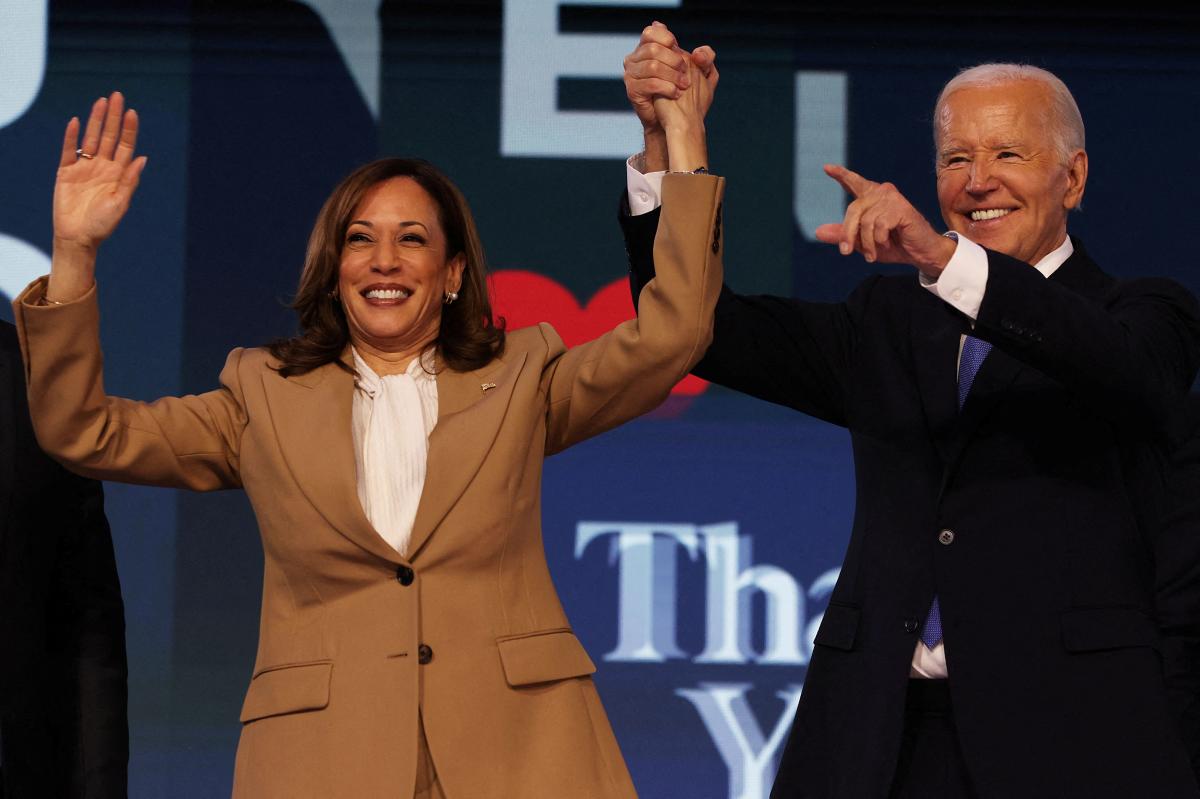
Kamala Harris has been a trailblazer in politics for most of the last two decades, giving more and more young women a sense of unlimited possibility.
But on the night she accepted the Democratic presidential nomination, only one national convention speaker stressed the fact she is but the second woman so nominated and just the third female to make a national ticket.
That speaker was Hillary Clinton, the first woman nominated for president and the winner of the popular vote in 2016 by almost 3 million, a margin that once all but guaranteed Electoral College victory but has not for the last two decades, which featured two of only three American presidents elected with a minority of votes.
Clinton, who stressed her then-unique status as a female at the top of a presidential ticket, spoke of “cracking this last glass ceiling,” and fervently hoped Harris would bust it wide open.
But Clinton has a different perspective from Harris, perhaps because she is almost 17 years older. It’s much like younger women today who cannot remember when married or engaged women were denied jobs legally because they might become pregnant. That discrimination was fully authorized until court decisions of the 1980s used an earlier Civil Rights Act to ban it.
Now women occupy positions of authority in a host of fields, including law, medicine and clergy. More than 56 percent of current law school students are women. And in 2023, 54.6 percent of medical school students were females, having become the majority in 2020. Both men and women by now are accustomed to representation and treatment by skilled females.
Millions of American churchgoers also are used to hearing women deliver sermons from myriad pulpits. Every Anglican denomination ordains women priests, along with most Lutheran and Presbyterian churches, while both Reform and Conservative Jewish denominations ordain women rabbis.
But there remains considerable resistance to female clergy, where fields like law and medicine have no problems with women, who occupied less than 5 percent of student slots in those fields just 100 years ago.
The Roman Catholic church remains the largest resistor to women in pastoral roles, but Mormons, Southern Baptists, Southern Methodists, some Pentecostal churches, Muslims and Orthodox Jews also allow no female clergy.
But the indications are more women will be in more positions of authority in the future. Example: Caltech, one of America’s premiere colleges, now has its first majority female freshman class.
Taken together, all this has made it ever easier for both men and women to accept females in positions of authority.
That’s probably one reason Harris’ gender drew so little note during the four weeks she took to solidify herself as the Democratic nominee before the party convention. It’s also likely why her gender was not a major focus of either conventional speeches or her own almost hourlong acceptance speech.
Yes, Harris has had to walk something of a tightrope: She’s had to project strength without aggressiveness, boldness without being strident, physical attractiveness without vanity, and caring without submissiveness.
But she’s long handled those complications without much problem. As district attorney of San Francisco, attorney general of California and vice president, Harris burst through previous glass ceilings without offending many very masculine men.
It was the same this summer as she vetted and interviewed possible vice presidential running mates. The likes of Pennsylvania Gov. Josh Shapiro, North Carolina Gov. Roy Cooper, Arizona Sen. Mark Kelly and eventual nominee Tim Walz, the governor of Minnesota, had no qualms about accepting her as their boss.
Some of these men epitomize masculinity, but none quailed at the notion of serving a female occupying arguably the world’s most powerful political position.
Walz displayed nothing but comfort after his selection, seemingly having no trouble ceding the limelight and most public attention to Harris during bus tours and at the convention itself.
So anyone expecting her to act timid or fearful of Trump in their first debate (and others that may follow) probably doesn’t know Harris very well.
She may turn out to be the ideal candidate for this time, and if that’s so, it will be because of the success of myriad other women who broke through to their own successes and authoritative stature.
Email Thomas Elias at tdelias@aol.com. His book, “The Burzynski Breakthrough, The Most Promising Cancer Treatment and the Government’s Campaign to Squelch It,” is now available in a soft cover fourth edition. For more Elias columns, visit www.californiafocus.net
This article originally appeared on Ventura County Star: Elias: Why her gender gets little mention in Harris campaign
EMEA Tribune is not involved in this news article, it is taken from our partners and or from the News Agencies. Copyright and Credit go to the News Agencies, email news@emeatribune.com Follow our WhatsApp verified Channel





